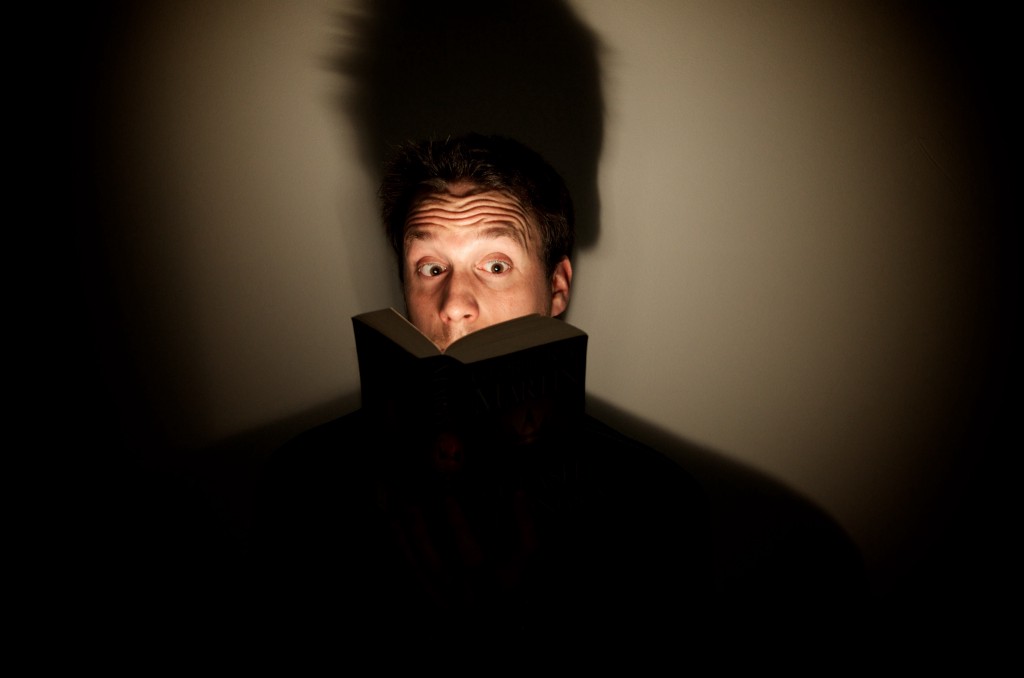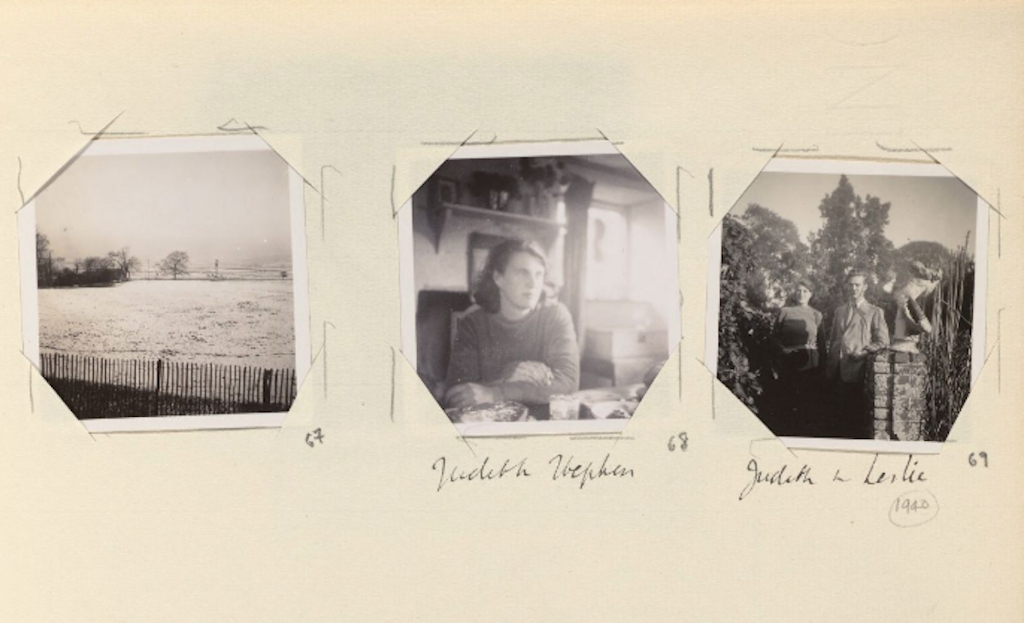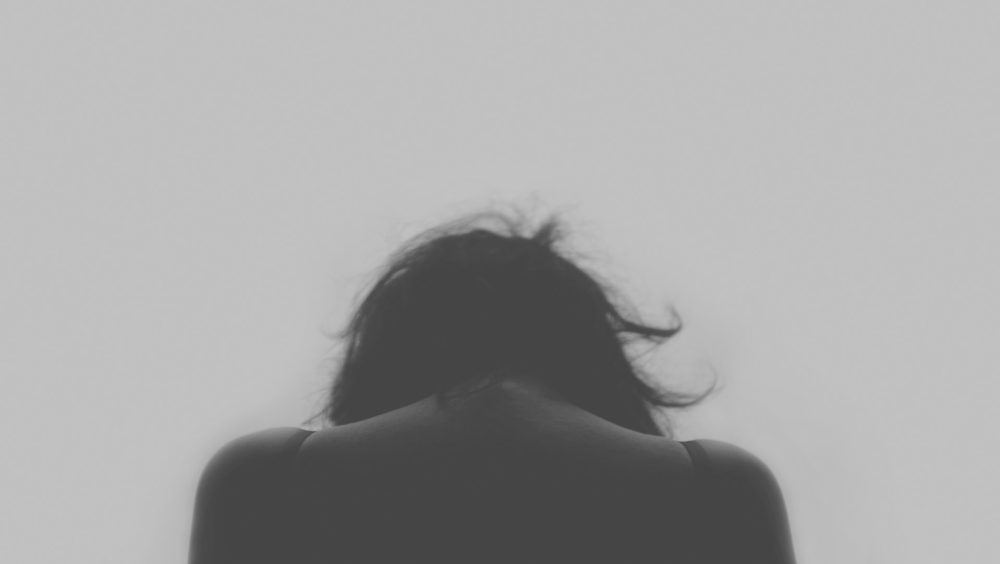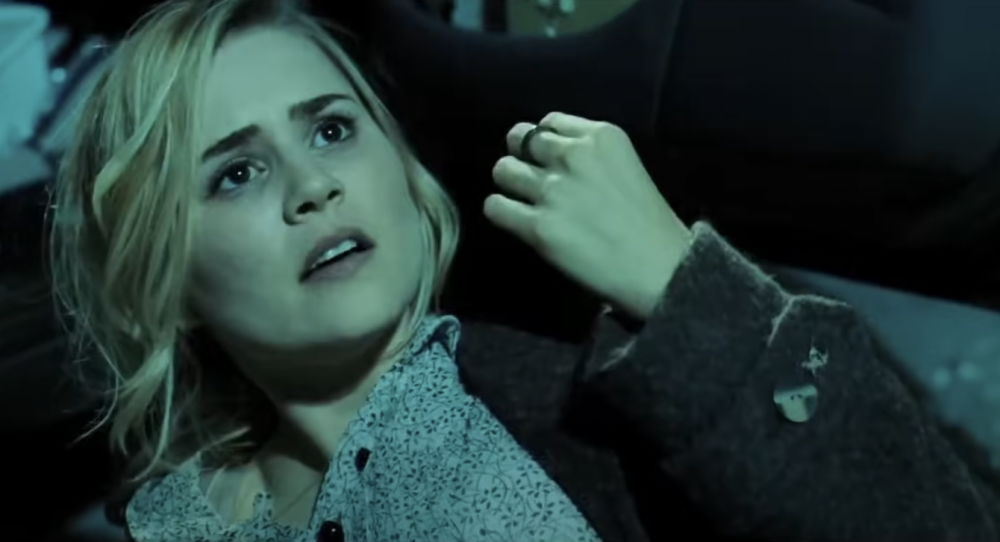essays
Reading Horror Novels Helped Me Deal with OCD
I found resolution and catharsis via characters who had it even worse than me

When I was growing up, my mother’s worrying was a bit of a shared joke between the rest of the family. If, in the car on the way to the store, my mother turned and asked my father if he had turned the stove off, he would sigh and say, “Of course, dear,” before turning and smiling conspiratorially at me in the backseat. If my brother used a chair as a stepstool, I would joke that I was going to tell mom.
As I got older, her worrying got worse, and it stopped being funny. If she thought the stove was left on, we might turn around; if she caught us using a chair as a stepstool, she would shriek as though she had found us juggling knives. Her worrying was turning into fear, and her fear into panic. It made dealing with her more and more difficult. Still, she remained undiagnosed until I was nearly 18.
I clung to established routines and rituals out of fear that to do otherwise was to invite terrible consequences.
My own anxiety didn’t take form until my mid-twenties. As I got older, I started to see more and more of my mom in my thoughts and behavior. It became normal to triple-check the stove, stave off panic attacks at hibachi restaurants, and avoid crowds. I clung to established routines and rituals out of fear that to do otherwise was to invite terrible consequences.
In January 2015, I fought past my fear of change and started my first semester in graduate school as an MLS candidate. It was a big step. It up-ended my life in many ways, and — as happened throughout my four years of undergrad almost a decade earlier — I couldn’t help but feel overwhelmed by both the upheaval of my routine, and the pressure to succeed.
By May 2015, my anxiety had spiraled out of control, manifesting as an uncontrollable fixation on bugs. Bed bugs, carpet beetles, termites, lice — in my mind, I was surrounded by insects. I spent my nights crawling on all fours with a lighted magnifying glass, examining carpet fibers and every nook and cranny of my bedroom. I poured over Internet forums and websites for information about the identification and eradication of my imagined enemies. I couldn’t sleep because I imagined my skin crawling with bugs. During the day, I was a zombie — exhausted, consumed with my fears, and sure that everybody who looked at me could sense that I was contaminated, and that I was a failure.
By July, I had been diagnosed and begun treatment for a combination of General Anxiety Disorder, Major Depressive Disorder, and Obsessive Compulsive Disorder. My prescribed medications quickly tempered my condition, and with the combined help of these medications and cognitive behavioral therapy, I’ve been steadily recovering since.
But this essay isn’t really about the diagnosis of my illness, nor its treatment.
It’s about books.
In the interminable weeks between my initial spiral and the medications kicking in, reading saved me. Though I’ve always used books to help me deal with negative emotions, I had used them to escape into worlds that felt better and brighter than my own. They were fantasies of a life full of agency and joy, both of which seemed to elude me.
But at the peak of my anxiety and obsession, I didn’t reach for those fantasies. They would only make my life seem worse by comparison. I needed a different escape. And I found it in a genre I’d had little interest in through most of my life — horror.
As someone who was terrified of the dark till my mid-twenties, and who still sleeps with the TV on most nights, horror was something I’d avoided. But as my anxiety grew, it became a safe haven. It gave me something else — something besides my own obsessions — to channel my fear into. The generalized fear of an anxiety disorder creates a fight-or-flight response to an intangible threat, a threat that can’t be fought nor fled from. Reading horror allowed me to take all that adrenaline and pour it into something outside of myself, something that I could see resolved at the end of the story. It gave me the gift of catharsis.
It also gave me the gift of perspective. The characters in horror stories suffered from circumstances far worse than my own. I could tell myself that no matter how anxious I felt — or even if my anxieties proved to be true — it still wasn’t as bad as contracting a deadly virus, getting lost in a hostile wilderness, or having to choose between my own life and that of someone I love.
It allowed me to take all that adrenaline and pour it into something that I could see resolved at the end of the story.
That particular story, “Snow,” by Dale Bailey, was published in the June 2015 issue of the horror e-zine Nightmare. Nightmare became my core reading material during that period of crisis. I devoured stories of ghosts, monsters, and existential dread. The terror they inspired was more manageable than my own anxieties. The more nihilistic a story was, the more comforting I found it — after all, what were my own meaningless problems against the meaninglessness of human existence? If nothing really mattered, then what use was it to cling to my fears of failure and worthlessness?
With medication and therapy, my obsessive-compulsive behavior faded, and my anxiety became more controllable. But I still turn to horror. As I approached graduation, the stress once again triggered my anxiety. In addition to the pressure of completing large final projects in each of my classes, I felt unable to rise to the challenge of taking my next steps into adulthood, of beginning a career and all the new responsibilities that entailed — especially since I hoped to relocate, adding an extra layer of uncertainty to a future I was already apprehensive about. I combated these fears with book after book. I shivered through the familial terror of A Head Full of Ghosts and Disappearance at Devil’s Rock by Paul Tremblay, comforted that as a child-free couple, my husband and I would never have to endure the pain of a child lost, to threats supernatural or otherwise. I reveled in the cosmic horror of M.R. Carey’s The Girl With All the Gifts, consoled by how small and unimportant it made life feel in the grand scheme of things. And I confronted true evil in Hex by Thomas Olde Heuvelt, assuaged that, if nothing else, I had escaped the existential horror of never being able to leave your home town.
Using books to cope with mental illness is nothing new. Officially, bibliotherapy has been around since the first half of the 20th century, but the healing power of books has been recognized for millennia; according to historians, Ramses II had the phrase “healing-place of the soul” inscribed over the entrance to the library in his tomb complex at Thebes. In modern times, reading has been used (often in conjunction with other treatments) to help sufferers of depression, addiction, PTSD, and dementia. Although much of the modern practice of bibliotherapy revolves around the use of non-fiction books read in a cognitive behavioral therapy setting, the therapeutic usefulness of fiction (also known as creative or affective bibliotherapy) has also been demonstrated. A recent study published in School Psychology International found that children in foster care who had experienced significant parental absence showed less signs of anxiety, aggression, and violent tendencies when exposed to superhero stories in a group bibliotherapy setting than those who weren’t; the bibliotherapy group also showed an increase in hopes and goals for the future. Another study, published in 2016 by the journal Sexual & Relationship Therapy, compared the effects of self-help books versus erotic fiction to treat low sexual desire in women; it found that both types of reading increased sexual desire and pleasure.
Although affective bibliotherapy has been shown to be useful, the research on what works, how it works, and why it works is still limited. Many believe that identification is key, and that the story must have clear parallels to the reader’s own life; certainly, those who feel confused or isolated due to their circumstances may find clarity in reading about a character facing the same circumstances. For example, a teen grappling with their sexuality might find insight in reading how the gay teenage protagonist of Simon vs. the Homo Sapiens Agenda deals with coming out. Similarly, a reader adapting to a disability may feel empowered by reading a book where a character saves the day despite or even because of their disability, such as Millie, a double-amputee with borderline personality disorder who is tasked with stopping an inter-realm war in Borderline, the first book in the contemporary fantasy series The Arcadia Project. Others attribute the healing power of books to the nature of the story itself, rather than its characters. Readers can distract themselves from their problems by engaging their minds in an exciting or intellectually stimulating book that redirects their mental energy, or find tranquility in the calming beauty of poetry and lyrical prose.
Although people may differ wildly in their approaches to bibliotherapy, it’s undoubtedly true that reading is good for your mental health. Not only has the act of reading itself been proven to relieve stress in as little as six minutes, but it has also been shown that reading fiction improves brain function by strengthening neural connectivity, and increases empathy by engaging the parts of the brain responsible for language, sensations, and movement, enhancing embodied cognition, or the ability to feel an experience without actually living it. It has even been suggested to improve your sleep. So while horror might stave off everyone’s fears, you’re likely to improve your mental health in some way if you read . Regardless of which method works best for you, Ramses II had it right: books are definitely good for the soul.








